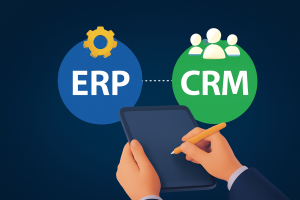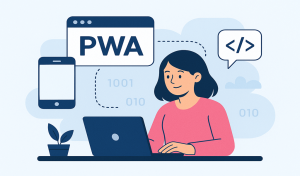How to Build an Online Services Marketplace

Whether you call it the global village, the ocean of talent, or the universe of possibilities, we’re moving away from the physical world and toward the digital. People use mobile devices to shop on ecommerce platforms, consume digital goods, and work and communicate. The digital transformation is apparent, and online service demand is at an all-time high.
Creating an online services marketplace can be a lucrative business venture that allows you to access a growing variety of markets.
What Is an Online Services Marketplace?
You’ve utilized talent-sourcing services like Upwork or Fiverr to hire people as a business owner. You’ve ordered an Uber or reserved an Airbnb unit for your commute.
Online services, on the other hand, can be anything where the product is a service. You can make money by offering online fitness classes, live meditation sessions, or product management courses.
How services marketplaces work
Service suppliers publish their offerings in an online services marketplace. Buyers look via the app and hire a service provider to complete tasks. To assist service delivery, the marketplace charges a commission (from either the seller or the customer, or both).
Benefits of online services marketplace
The main benefits of an online services marketplace are the following:
- You’ll have access to a new channel through which to market and sell your products or services;
- Marketplaces have cheaper marketing expenditures than traditional sales channels.
- More overseas sales opportunities;
- Customers adore marketplaces, and they are quite convenient.
- A well-established online marketplace enhances your brand’s reputation and increases customer loyalty.
- Obtaining impartial feedback and comments on your products or services enhances their appeal and, as a result, increases sales.
- Marketplaces make finding new business partners much easier.
- They are available 24 hours a day, seven days a week, and there are no restrictions on how long they can work.
How to Develop an Online Services Marketplace
Creating an online services marketplace is a way to get a piece of the expanding remote services delivery market. The popularity of niche online services will expand in tandem with the demand for online services.
Research and SWOT analysis
Determine the actual problem that your marketplace concept addresses. Your proposal must offer an obvious benefit for the client, similar to how Uber focuses on making ride-sharing simple. When you’ve got this vision, look at the competition in your niche to see how you stack up.
Idea validation
After deciding on the main topic, it’s a good idea to figure out the size of the market, who would use your marketplace how often, and what external resources you’ll need to succeed.
Planning stage
It’s critical to gather requirements, do market research, generate specification documents, design wireframes, estimate delivery time, and decide on marketplace launch expenses during the planning stage.
Forming a team
Various professionals, such as Back-end and Front-end Engineers, Quality Assurance/Automation Engineers, and UI/UX Designers, may be required depending on the budget and scope of the project. Project Managers, Product Managers, and Business Analysis Specialists may be required depending on how the marketplace development process is conducted.
MVP/Development stage
This is the most crucial stage of a project, and it deserves its own essay because so much territory must be covered. As a result, we won’t go into great detail. However, this is the point in your project’s life cycle when you need to rely on a professional team. The team must have sufficient expertise and understanding to set up a proper continuous delivery strategy, create an MVP, and then remain with you until the project is completed.
Forming a marketing strategy
It’s critical to establish a marketing strategy that will convert into a winning approach once your marketplace is launched. As a result, reaching out to sellers in your niche on competitive marketplaces and company directories makes sense. There are numerous customer acquisition tactics available, such as creating a landing page to collect emails prior to the launch of your marketplace, advertising your firm in online communities, contacting influencers in your target community, or starting a blog.
Example features of an online services marketplace app
| Admin | Service Providers | Consumers |
|
|
|
|
|
|
|
|
|
|
|
|
|
| |
|
| |
|
| |
|
| |
|
| |
|
Final notes
We hope that this detailed guide to creating a marketplace has answered your question. Building a marketplace appears to be a difficult task. Even yet, if you have a dependable software development business to take on your project, things start to look extremely promising. Their team of experts will create a one-of-a-kind and strong solution to assist your marketplace prosper.




